|
Douglas Adams
Author of world famous pentalogy Hitchhiker's guide to the Galaxy, man behind
the number 42, nihilistic huumorist. His characters such as paranoid android Marwin, two-headed president
of the Galaxy Zaphod Beeblebrox had become legends... As well as lot of hitchikers' rules or remarks.
|
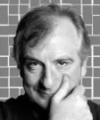
|


|
|
Michal Ajvaz
Czech writer - nearly surrealistic novels in which the borders of reality are discovered. His absurd short
stories are full of beasts, strange animals, weird actions.
|
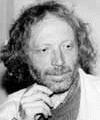
|


|
|
Brian W. Aldiss
British sci-fi writer. My favourite book is Nonstop. He wrote a lot of
perfect short stories too.
|
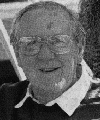
|


|
|
Isaac Asimov
One of the 'fathers' of sci-fi literature. Series about Foundation and Robots
had formed the trends in sf for a long time. Besides this he wrote a anormous amount of books about science,
run a lot of antologies and worked for sf magazines.
|
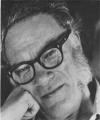
|


|
|
Egon Bondy
Czech philosopher and writer. He has been active in underground culture during communist regime,
now he lives in Slovakia. His studies about history of philosophy are very interesting, so are the novels like
'Cybercomics' or 'Sklepní zápisky'.
|
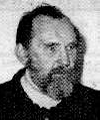
|


|
|
Charles Bukowski
American writer famous because of his strange life and work. His books are filled with boozing, fucking,
unexpected flops and weird people. Main character in most of his books, Henry Chinaski, is infact Bukowski himself.
Try Women, Hollywood or Ham on rye...
|
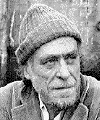
|


|
|
Michail Bulgakov
Famous russion writer. His world famous novel Master and Margarita is combining philosophy, history and
phantasmagoric view on Moscow in the soviet era. Even his other books are often very satirical.
|
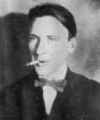
|


|
|
Konstanty Idlefons Gałczyński
A strange polish poet and playwright. I like the absurd miniature-plays made for the Green Goose Theatre.
|
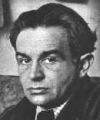
|


|
|
William Gibson
American sci-fi writer, one of the founders of cyberpunk. In many novels and short stories he is describing a
dark vision of over-mechanized world. Computers, hackers, people on the edge... The brilliant atmosphere makes you believe.
|
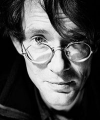
|


|
|
Nikolai Vasilievich Gogol
Russian writer and playwright. His massive irony is famous. He wasn't afraid to reveal all the problems
he witnessed. Drama The Government Inspector mock the hypocrisy in the society.
|
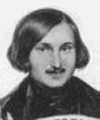
|


|
|
Jaroslav Hašek
Author of Good soldier Svejk, character that is often taken as a symbol of Czech -
'laughing beasts'. Svejk became worldwide known, but mostly just a little is known about Hasek himself
and the rest of his works.
|

|


|
|
Karel Havlíček Borovský
Writer and journalist. He was all life fighting with absolutistic regime, which he was
attacking in the newspaper and books, great are e.g. Epigrams.
|
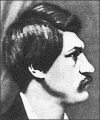
|


|
|
Robert Heinlein
Legend of american sci-fi, he wrote a lot very different books. From militaristic (but
not so good imho) Star Troopers, over Puppet Masters to exciting and complicated novels
like Stranger in a Strange Land and The Moon is a Harsh Mistress.
|
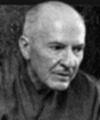
|


|
|
Joseph Heller
American writer, that described the absurdity of the war. In WW2 he fought in US Airforce and after the war
he wrote about it a famous Catach 22.
|
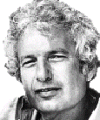
|


|
|
Ivan Landsmann
A czech author living in Netherlands. He was a miner, and his novels are reflecting the dirty reality of
miner's life, plus many strange stories, plus the emigration and what followed...
|
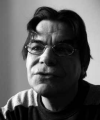
|


|
|
Stephen Leacock
Canadian writer and humorist. Satirical tales that often parody various kinds of pulp literature,
but sometimes are having more serious, social context. I haven't read the original - but I find the czech translation
most brilliant with lot of funny neologisms.
|
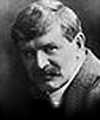
|


|
|
Stanisłav Lem
One of the most famous polish writers and probably the most sucessful sf writer in
post-comunist countries. Why? One reason may be the nice play with the words, other is a new view
on sf clichés - like the novel Solaris. His contemplation about futurology and new technologies
published in Summa techonologiae show us his prodigious knowledge.
|
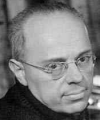
|


|
|
Henry Michaux
A french writer, on the very first look seems pretty absurd, but later you come upon hidden
meaning, very satyrical, very ironic, very witty.
|
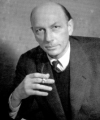
|


|
|
Henry Miller
American in Paris. In Tropic of Cancer he was able to truly describe bohemian underground
in 30's Paris. Very scandalous book those days - lot of naturalism. Upcoming crisis could be recognised in way
the characters were acting. No matter what were doing - dreaming, fucikng or cheating each other.
|
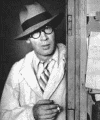
|


|
|
George Orwell
He became famous because of books 1984 and Animal Farm, but he is one of
biggest english essayist too. His political opinions were often criticised. Although especially Animal
farm is an alegory demasking the truth about stalinism and whole communist revolution, Orwell was a
socialist! But he was still a proud englishman and democrat. His experience from Spanish civil war
were described in Homage to Catalonia.
|
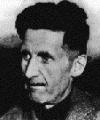
|


|
|
C.D. Payne
Diary of Nick Twisp Youth in revolt became a 'cult book' among the high school students,
but I recommand it to everyone who passed through teenage - it's a good laugh.
|
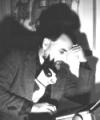
|


|

